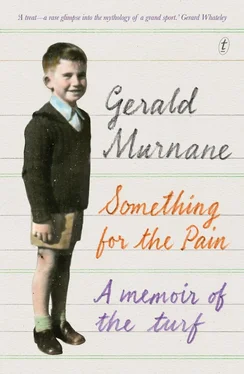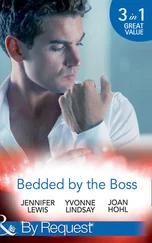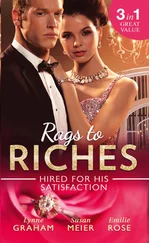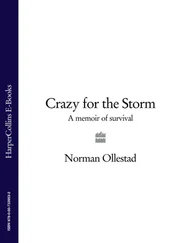The morning is warm and sunny, and the side doors of the church have been left open. From my seat beside my father, I can see across Bell Street into the front gardens of several single-fronted cottages. Bell Street has long since become a six-lane major road, but passing cars are so few in the early 1940s that I am able to hear from my seat just inside the church the whirring of a hand mower pushed by a bald man in his shirtsleeves backwards and forwards across a tiny patch of buffalo grass in front of one of the houses opposite. The man and his mowing must have attracted me more than the ceremonies in the church; I recall my father’s elbow several times digging into my side and his finger pointing me back towards the altar.
On the other of my two remembered Sundays, I am seated in a comfortable armchair while my father and the Kelly couple, all three of them seated and at ease, discuss the race meeting of the previous day, which would have been at Flemington or Moonee Valley or Mentone, given that the courses at Caulfield and Williamstown served as army camps throughout the Second World War. All three adults in the room attended the race meeting, wherever it was. My father would have gone alone, as always. George and Bernadette Kelly, like thousands of other working-class couples in that era, would have dressed in their best clothes, he in a suit and tie and she in a coat and hat, and would have considered the outing their chief social event for the week. In the trams and trains that they travelled on, most of the passengers would have been racegoers or, if the season was winter, a mixture of racegoers and football followers, and the Kellys and their like would often, on their homeward journey, have had with strangers the sort of conversation that they had with my father on the Sunday in question.
I cannot account for my father’s and my being where we were on that morning. My father never visited anyone for merely social purposes, and I don’t recall his being especially friendly towards George Kelly, who would have seemed to my father no more than a mug punter obliged to read form guides for lack of the inside information that my father was able to obtain. Anyway, there we were, and I’ve remembered for more than seventy years what was almost certainly my only visit to that lounge room.
While I loll on floral-patterned velvet upholstery, I take more interest in what I can see around me than what I can hear. The floor of the room is covered, most of it, by a carpet square, something that I have never previously seen. The space between the perimeter of the carpet and the skirting board has been stained the same colour as the soft drink that I am sipping. When Mrs Kelly served me the drink, she told me it was sarsaparilla. The word is new to me, and I try to persuade myself that the flavour of the stuff in my glass is as strange and exotic as its name. Each of the other three persons in the room has a drink in hand, and each drink is a different shade of golden brown, as though all four of us have been served according to a scale of colour, with me being the possessor of the richest gradation. (Not that it matters, but I decided just now that Bernadette would have been drinking beer and George whisky, while my father had some sort of ginger-coloured soft drink.) George and Bernadette smoke cigarettes continually. George rolls his from a yellow and red tin of tobacco, while Bernadette draws hers out with her fingertips from a packet showing the silhouettes in black and white of an elegantly groomed man and woman. Standing on the carpet halfway between George and Bernadette is the item of furniture that tells me more eloquently than anything else in the room that the Kellys are more privileged than my own family. Was it called a smokers’ stand? It was made of stainless steel and some early variety of plastic. It had a circular base and an ornamental top and, halfway between, ashtrays and fixtures for holding packets of cigarettes. George annoys me by flicking his ash carelessly into the tray nearer him, but Bernadette wins me over with her way of uncrossing her legs and then leaning forward and tap-tap-tapping the end of her cigarette with her index finger. This she does time and again, and I never fail to watch her every movement.
The three adults discussed one after another of the races on the previous day’s program. Being still too young to understand the business of betting, I failed to follow much of the conversation. If my mother had happened to ask me afterwards for details, I could not have obliged her. And yet, I’ve remembered for more than seventy years a short statement made by Bernadette Kelly on that long-ago Sunday morning and have remembered also some of what I felt on hearing the statement.
A certain race and its winner had been mentioned for the first time, probably by my father. Before anything else could be said, Bernadette Kelly delivered the sentence that gives this section its title, and I like to think that she delivered it while tapping her cigarette ash into one of the trays on the smokers’ stand that I so admired. Her emphasis was on the first of the four words, as though to tell my father and, perhaps, myself that he or we would have been foolish to surmise that two punters as shrewd and successful as she and George could have wavered for an instant in their determination to back such a certainty as Money Moon (colours unknown). If she said more than this, I never afterwards recalled it and probably failed to hear it while I leaned back against the headrest of my chair and sipped my sarsaparilla and began to assemble the details of a daydream scene in which the words money and moon denoted much more than a successful racehorse.
Just above the horizon of a faraway picture-book landscape of fields and hills and woodlands and spires in distant villages, a huge orange-gold moon is rising. The moon has the same rich colour as the liquids in the glasses of the inhabitants of the landscape: fortunate folk who sit at leisure in their lounge rooms. Or the moon has the same colour as the tobacco in the cigarettes that the fortunate ones lift to their lips or tap into their elaborate ashtrays. This is the landscape not only of Money Moon but of Honeymoon, for I have heard that word already and am able faintly to conjecture what a man might feel on being alone with his good-looking dark-haired wife in a richly lit landscape. The landscape of my vision is remote from me, and not just because of my being still a child. Before I can hope to enter the territory of Money/Honeymoon, I must devote myself to learning the immensely complicated lore of horse racing.
I lived for about three years in Bundoora. Let’s say, in round figures, that I spent a hundred and fifty Sunday mornings there. Let’s suppose further that my father and I attended mass in Preston every six weeks, having been taken there by the family that I’ve wholly forgotten. That amounts to twenty-five masses in the Church of the Sacred Heart. But my father surely drove us all to mass every Sunday during the few months while he owned the Nash sedan that was paid for by Dark Felt. (He owned the splendid car only briefly before having to sell it during a run of losing bets.) So, in round figures again, I attended forty masses while living in Bundoora. Of the forty hours that I spent in church I recall only the few minutes while I watched the man mowing his lawn. I recall no sight of altar or vestments, no tinkling of bells, no word or gesture from the pulpit. Perhaps I visited the Kelly lounge room on more than one Sunday morning, although I suspect not. The question, however, is irrelevant. On the scoreboard of memories from my Sundays in Bundoora, the Kelly lounge room has easily defeated the Church of the Sacred Heart.
During the fifteen years after I left Bundoora, I attended mass faithfully every Sunday and was much affected by my Catholic beliefs. On a few brief occasions, I experienced a sort of religious fervour, and for six months in my eighteenth year I even supposed I was called to be a priest. My writing this account of my Sunday morning with boozy George Kelly and chain-smoking, dark-haired Bernadette has convinced me, though, that my religious faith rested on foundations that were flimsy indeed by comparison with my faith in — what should I call it? — the dream-world brought into being by the sight of richly tinted drinks and the sound of mellifluous horse names.
Читать дальше












